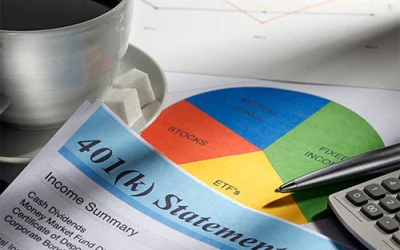Inflation is the rate at which the general price of goods and services increases over time. As the cost of the things you buy increases, it means you need to spend more to buy them – so your money doesn’t go as far as it did before.
For decades, inflation was a non-issue for many consumers. Sure, gas prices may have spiked now and then, but in general, prices rose so slowly that some people may not have even noticed. And the decade from 2009 to 2019 offered some of the lowest inflation ever measured at less than 1.5% per year on average.
Then the Covid pandemic struck and the price of just about everything – from eggs to used cars – increased at rates few people could have ever expected. By 2022, consumers experienced inflation as high as 9.1%, which was the highest rate in 40 years. And that figure is the average rate of inflation across the entire economy. The price of some items increased by as much as 60% in 2022.
The good news is that inflation has declined from Covid-era peaks, but the bad news is that inflation is likely to stay around for some time. Let’s explore the causes of inflation and look at specific steps you can take to minimize its impact on your life.
What Causes of Inflation?
The most common types of inflation are demand-pull, cost-push, and monetary inflation, each of which played a role in the near-record inflation caused by the Covid pandemic.
Demand-pull inflation occurs when there is an increase in demand for goods and services, but the supply remains constant. This leads to an increase in prices, as consumers are willing to pay more for limited resources. Early in the Covid pandemic, for example, there was an increase in demand for personal protective equipment, causing prices to rise due to limited supply.
Cost-push inflation occurs when there is an increase in the cost of production, such as wages, raw materials, or transportation costs. For example, the explosion of online shopping during Covid meant that there was so much demand for goods produced overseas that the cost of shipping a container from China increased by as much as 10 times the typical rate. As a result, consumers paid more for goods to offset those increased transportation costs.
Monetary inflation occurs when there is an increase in the money supply, leading to an increase in demand for goods and services. Pandemic relief programs sent checks directly to millions of Americans to offset the loss of jobs, but many people didn’t lose their jobs and some of those who did may have actually earned more from relief funds. So this increase in the supply of money in the economy meant that people often had more to spend than before, contributing to both demand-pull and cost-push inflation.
It’s also important to note that both prices and wages increase in response to inflation, meaning that inflation then becomes self-reinforcing. Higher wages lead to higher production costs, which lead to higher prices, which lead to demands for higher wages, and on it goes. To break this inflationary cycle, the Federal Reserve increases interest rates to try to “slow down” the economy by making it more expensive to borrow and more advantageous to save. Then, as the demand for goods is reduced, the rate of inflation ideally moderates over time.
The Effects of Inflation
What does inflation mean to the average consumer? Some effects include:
Decreased Purchasing Power
Your money simply doesn’t buy as much as it did before. On the one hand, prices may increase. But you may also find that what you get for the same amount of money is less than before. The empty space at the top of some food packages, for example, is an illustration of “shrinkflation” in which prices stay the same but deliver less for your money.
Reduced Savings
Not only does inflation make it more difficult to save money, but the money you do save loses purchasing power. Higher higher interest rates can partially offset this issue (see below).
Increased Borrowing Costs
Since the Federal Reserve raises interest rates in an attempt to mitigate inflation, the cost of borrowing increases as well. For example, in early 2021 the average home mortgage rate was just 2.65%. By early 2023, the average mortgage rate was 7.13%.
In practical terms, the increased interest rate means that the cost of financing a $300,000 mortgage for 30 years increased by nearly $800 per month in just two years. And since the overall monthly payment is around 50% higher, someone who qualified for the mortgage in 2021 may not have qualified in 2023.
What You Can Do
There’s nothing you can do as an individual to reduce overall inflation, but you can take steps to minimize its impact on your financial life.
- Reduce Debt – As interest rates increase, the cost of carrying variable interest debt (like credit card debt) increases as well. Reducing high-interest debt will not only provide more cash flow for monthly spending and saving, but it may even improve your credit score - which could make it easier to borrow for major purchases in the future.
- Create a Monthly Budget - One of the most effective ways to deal with inflation is to budget your income and expenses carefully. Cutting back on discretionary spending, switching to less expensive brands, and even buying in bulk can all potentially help.
- Earn More if Possible – Asking for a raise, finding a higher-paying job, or adding a new source of income can help you stay on track to meet your financial goals.
- Save Money if Possible – If you can reduce expenses through budgeting, saving an emergency fund can help to provide a cushion against the effects of inflation when you absolutely must buy something.
If you do have money to save, you may also consider savings options with higher interest rates than typical savings accounts. Certificates of deposit, high-yield savings accounts, and inflation-protected securities can each be valuable tools to reduce the near-term effects of inflation on your savings. For long-term investing, most experts would suggest that an age and risk-appropriate approach continues to make sense regardless of current inflation. Historic stock market returns, for example, are higher than inflation but note that past performance does not guarantee future results.
If you’re concerned about the effects of inflation on your budget or long-term financial plans, please seek the advice of a qualified professional.








